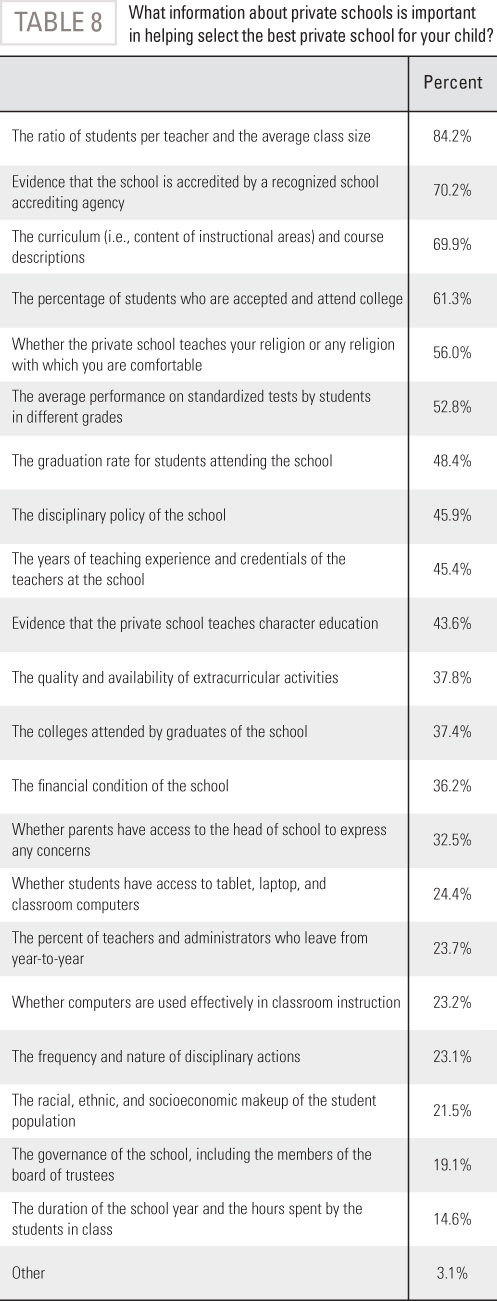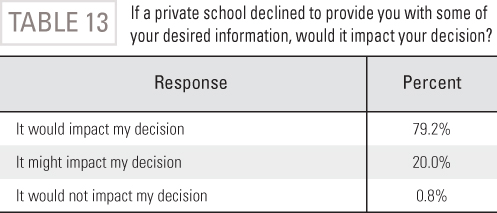Are Private Schools Accountable?
Milton Friedman said if the traditional public schools are as good as its defenders claim, they shouldn’t be afraid of competition. In a similar vein, some school choice supporters argue that if private schools are performing well then they shouldn’t fear state standardized tests. Such is the implication of a new policy toolkit released yesterday by the Thomas B. Fordham Institute, which recommends that private schools receiving vouchers or tax-credit scholarships only employ state governments’ testing regimes to ensure “accountability.”
To be sure, private schools aren’t averse to oversight. It’s more about who’s providing it and who’s in charge of it: government or parents.
With government at the core of Fordham’s toolkit, it ultimately will be prone to political decisions and special interests. We’ve seen how that approach has impacted our public schools. Layers and layers of bureaucracy, top-down standards, onerous reporting requirements, and tests have been foisted on public schools for decades. Do we really want the same for our private schools? Fordham once noted that sought-after accountability through state testing has been an “illusion.”
Even the name “toolkit” implies there are different tools available for government to hold private schools accountable. But there aren’t an array of measurements offered by Fordham. It’s really just a ruler to measure how students do in reading and math.
Fordham says leading private schools down that narrow educational approach via state testing won’t happen but admits “[i]f there’s a downside to this proposal, this is it.” Fordham proposes only voucher students be tested. So, at a minimum, there clearly is an incentive for private schools to at least “teach to the test” with them. But as Cato’s Jason Bedrick asks, how can that not inevitably trickle over and affect non-voucher students?
Though the tests do not dictate curriculum per se, they create a powerful incentive for schools to teach the same concepts in the same order at the same time. This would make it all but impossible for schools to experiment with new ways of tailoring education to meet the needs of individual children, rather than expecting that all children who happened to be born in the same year should progress at the same rate across subjects.
Common Core is already moving the nation’s education system toward greater uniformity. If states adopt Fordham’s proposal, they would almost entirely eliminate any viable alternative to the Common Core regime.
Fordham even implicitly shows how its testing approach will eventually impact non-voucher private school students: “[i]f a private school’s voucher students perform in the two lowest categories of a state’s accountability system for two consecutive years, then that school should be declared ineligible to receive new voucher students until it moves to a higher tier of performance (emphasis added).”
If a private school accepting voucher students loses those students because of their low performance on state tests, how can it rejoin a school choice program without forcing all of its students to take, and perform well, on the state test?
Rather than telling parents what an acceptable education should be for them—via performance on a state test—we should give parents the ability to build their own toolboxes to confront their children’s educational challenges and needs.Parents can be trusted to do exactly that, as the findings from our “More Than Scores” report showed:


Fordham’s support for school choice is to be applauded. But its accountability toolkit, or ruler, will inevitably be used by government to slap private schools into submission.




